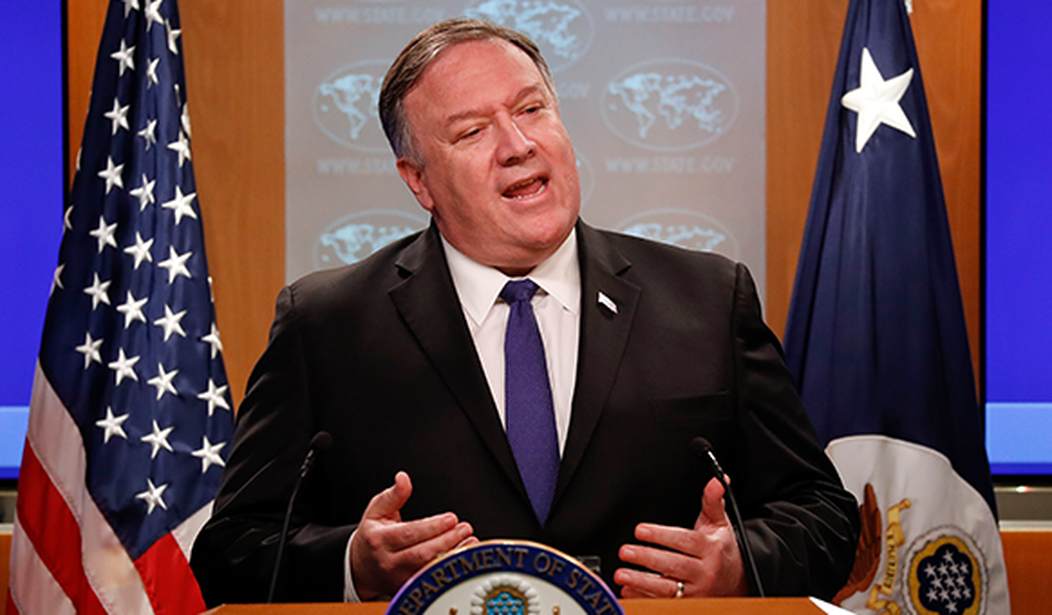U.S. Secretary of State Mike Pompeo's candid May 6 speech at the Arctic Council Ministerial Meeting in Finland startled many in his well-heeled audience.
The Arctic Council consists of eight countries that control some Arctic territory (U.S., Canada, Denmark, Finland, Norway, Iceland, Sweden, Russia) and six Arctic indigenous groups. Greenland is a Danish possession; the island has an immense Arctic Exclusive Economic Zone.
Formed in 1996 after the Cold War lapsed, Arctic Council nations regarded the Arctic as a "low tension" area. A recent NATO study called it a "zone of depoliticized cooperation." Until 2010 or so, that condition held.
Pompeo's speech began with the courtesies foreign ministers and ambassadors expect. But the tone changed when he warned the council that it no longer had the "luxury of focusing almost exclusively on scientific collaboration," cultural issues and environmental research. Why? "We're entering a new age of strategic engagement in the Arctic," he said, "complete with new threats to the Arctic and its real estate, and to all of our interests in that region."
He did not shy from naming these threats to real estate: China and Russia.
He scorned China's claim to be a near-Arctic state, saying, "There are only arctic states and non-arctic states. No third category exists, and claiming otherwise entitles China to exactly nothing." After noting Russia intends to connect the Northern Sea Route (through the Arctic Ocean) with China's Maritime Silk Road, he asked the crowd, "Do we want the Arctic Ocean to transform into a new South China Sea, fraught with militarization and competing territorial claims?"
Pompeo then expressed dismay over Russian claims to the "international waters of the Northern Sea Route" as well as other "provocative actions" and aggressive behavior. He mentioned Russia's illegal demand that other nations request its permission to use the route and the Kremlin's threats to attack commercial ships that ignore its demands. (The Northern Sea Route is the segment of the Northeast Passage along Russia's Arctic coastline.)
Recommended
The secretary of state added more prickly specifics, but that's enough direct quotation. Apparently, honest assessments and blunt facts stated in public flusters the genteel types who would rather ignore Russian and Chinese provocations. Pompeo's speech ignited a diplomatic firestorm that two months later still inflames the Russians and the Chinese.
I think Pompeo's goal was to challenge American and allied complacency about the escalating confrontation in a region few regard as vital.
Is it vital? The Arctic region (land and sea) is about the size of Africa, so it's immense. It is rich in natural resources, which Pompeo sketched in his speech.
I'll add some details. Arctic oil and gas fields are old news -- think Prudhoe Bay, Alaska. In 2008, the United States Geological Survey reported that fields north of the Arctic Circle (land and continental shelf) had 240 billion oil-equivalent barrels (oil and natural gas) in proven reserves. Conventional drilling techniques could tap these fields. Today, the USGS and other sources speculate the entire region may hold another 400 billion barrel equivalents.
Other natural resources attract commercial interest and have national defense implications. Last January, in an article for Edito Energie, Mikaa Mered of the School of International Relations-Paris cataloged the Arctic's global trove of rare earth oxides (REOs). Rare earth elements are critical to manufacturing high-tech equipment. Arctic Russia, Greenland and Canada have (respectively) the second, fifth and sixth largest REO deposits. These are land deposits. The Arctic seafloor may well have large deposits.
China has the largest REO deposits. Co-development of Arctic deposits and oil fields might have been a reason for obtaining Arctic Council observer status. That could happen, with Russia the likely partner.
But given China's use of man-made islands to steal territory in the South China Sea, dubbing itself "near Arctic" sounds like diplomatic preparation for taking that scheme to the North Pole.
Someone needs to remind Beijing the Yellow Sea is the North China Sea. Perhaps Mike Pompeo did just that.

























Join the conversation as a VIP Member